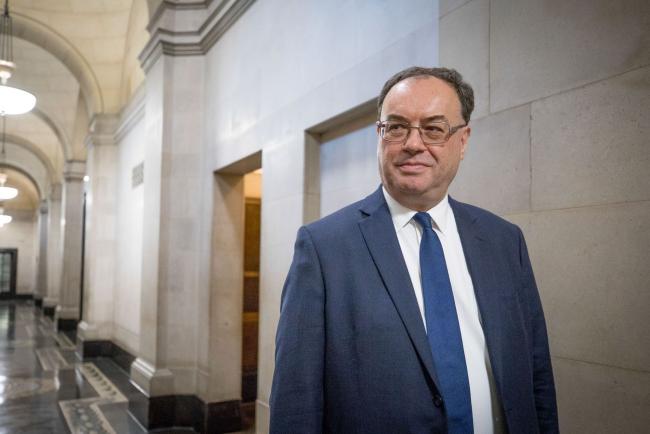(Bloomberg) -- The U.K. faces a protracted recovery from the coronavirus crisis and Bank of England policy makers stand ready to add more stimulus, according to Governor Andrew Bailey.
In comments that appear more downbeat than a scenario published by the central bank earlier this month, Bailey wrote in the Guardian Wednesday that the U.K. faces the risk of a “longer and harder recovery” than after previous recessions. The Monetary Policy Committee is right to consider options including cutting interest rates after having already slashed them to a record-low 0.1%, he said.
“No one can be sure exactly how the pandemic will unfold,” he wrote. “There are reasons to believe that economic activity will return at a faster pace than in many past recessions, but this depends on how the measures continue to be eased, what degree of natural caution is shown by people, and how much longer-term damage is done to the economy. The risks are undoubtedly on the downside.”
At their May 7 meeting, officials produced a scenario that showed the economy could shrink 14% this year, before rapidly recovering that loss in 2021. That was seen as overly optimistic by many economists.
Bailey wrote Wednesday that benefit claims data suggested the U.K. unemployment rate has more than doubled to around 10% -- also a more severe increase than foreseen in the BOE’s previous scenario.
His apparent shift to a more downbeat outlook echoes that of Christine Lagarde, Bailey’s counterpart at the European Central Bank. She said earlier on Wednesday that the euro-area economy is headed for a the worst-case slump envisioned in the most recent forecasts, and that hopes for a milder fallout are out of date.
The governor also used the op-ed to reiterate his stance on negative rates. Debate over whether the BOE could follow its European neighbors into cutting below zero has grown in recent weeks after policy makers from across the nine-member MPC refused to rule out any tools.
Read More: BOE Isn’t Close to Implementing Negative Rates, Haldane Says
“In view of the risks we face, it is of course right that we consider what further options, such as cutting interest rates into unprecedented territory, might be available in the future,” he wrote. “But it is also important that we consider very carefully the issues that such choices would give rise to.”,
©2020 Bloomberg L.P.

